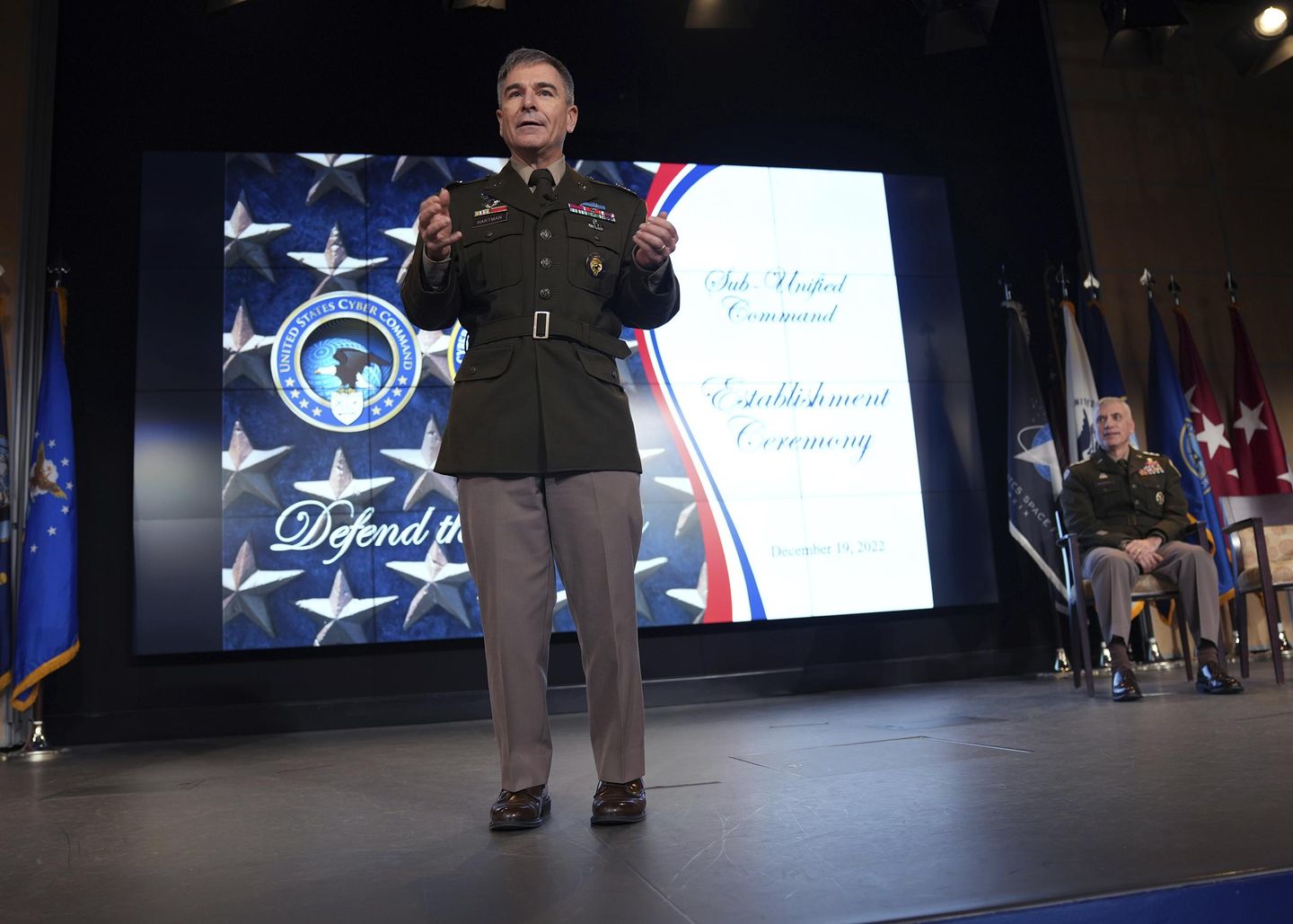
President Trump’s overhaul of the cyber apparatus of America’s military and intelligence agencies was on full display in Washington on Wednesday as a new leader of the National Security Agency and U.S. Cyber Command testified on Capitol Hill.
Army Lt. Gen. William Hartman is the acting director of both agencies following the sudden ouster of Air Force Gen. Timothy Haugh last week, with much remaining unknown about the cause of his dismissal.
Lt. Gen. Hartman told the Senate Armed Services Committee on Wednesday that Cyber Command’s code remains, “We win with people.”
“We must hire and retain key expertise, and keep our personnel ready to meet the challenges of competition and conflict in and through cyberspace,” Lt. Gen. Hartman said in a written statement. “We are working to grow uniformed cyber leaders at all levels, up to and including the officers who will eventually succeed me in this post.”
Sen. Jack Reed, Rhode Island Democrat, complained about Mr. Trump’s decision to remove Gen. Haugh during an armed services committee hearing on Wednesday.
“His sudden and inexplicable firing is disrespectful to his service but also disrespectful to every military member in or out of uniform and an indication that their service and sacrifice is in no way respected by this administration,” Mr. Reed said.
Republicans, too, raised concerns about Gen. Haugh’s exit.
Sen. Mike Rounds, South Dakota Republican, praised Gen. Haugh’s work and decried the end of his service.
“The departure of Gen. Haugh is a loss for our nation but will be a tremendous gain for any private or public entity where he decides to lend his expertise and leadership,” Mr. Rounds said. “I wish him Godspeed.”
Reasons for Gen. Haugh’s ouster are not immediately clear, as the Department of Defense did not elaborate while announcing the end of his role atop the NSA and Cyber Command.
Some Senate Democrats placed the blame on advice Mr. Trump received from right-leaning activist Laura Loomer. During a Senate Select Committee on Intelligence hearing on Wednesday, Sen. Mark Warner, Virginia Democrat, said he blamed Ms. Loomer for the shakeup atop the NSA and Cyber Command.
New leadership may not be the only change coming to NSA and Cyber Command, however.
Alongside Lt. Gen. Hartman’s testimony on Capitol Hill, Director of National Intelligence Tulsi Gabbard trekked out to NSA’s main campus for a planned visit to ensure the agency is following federal law.
Ms. Gabbard told the Senate Select Committee on Intelligence last month that she planned to make a “ride along” tour at NSA to ensure that the “reforms that Congress passed are being implemented to protect Americans’ civil liberties.”
A policy debate has also raged in Washington for several years about splitting the leadership of the NSA and Cyber Command in two so that no one leader presides over both agencies.
Amid the sudden ouster of Gen. Haugh, there is new attention to whether Mr. Trump may look to implement a structure that could create civilian leadership at the NSA.
Mr. Rounds said Wednesday that the dual-hat relationship had “absolute importance.”
“In the face of unexpected change, there remains tight integration of cyber and intelligence operations thanks to alignment under a single leader,” Mr. Rounds said at the committee hearing on Wednesday. “Such an arrangement remains paramount in future decisions of Gen. Haugh’s formal successor.”
Others see potential changes as worthy of careful consideration.
Jeffrey Rogg, previously a Joint Special Operations University assistant professor, said civilian leadership at NSA would help reinforce the agencies’ intelligence responsibilities that eclipse its strict military duties.
“The question is: how do you not only appoint a civilian but then civilianize what has been a military organization in terms of personnel, statutory authorities, [et cetera],” he said. “This is a massive reform effort, but one the country seriously needs to consider.”
Mr. Rogg, author of a forthcoming history of American intelligence, said the mission of the NSA fell under the control of the Department of Defense after a bureaucratic competition.
While the CIA has faced scrutiny on Capitol Hill, Mr. Rogg said the NSA has somewhat bypassed such oversight.
“NSA has escaped a lot of the same scrutiny but arguably is an even bigger possible threat to American liberty and privacy today because we all have smartphones and NSA’s reach is so big,” he said. “I’d like to see it be an independent intelligence organization not under DoD with more public and congressional oversight.”
The NSA may soon face more scrutiny from Congress and others in Washington, and Ms. Gabbard said this week she established a Director’s Initiatives Group focused on rebuilding trust in the intelligence community.





![Jasmine Crockett Justifies Mass Illegal Immigration With Bizarre Argument [WATCH]](https://www.right2024.com/wp-content/uploads/2025/03/1742007023_Jasmine-Crockett-Justifies-Mass-Illegal-Immigration-With-Bizarre-Argument-WATCH-350x250.jpg)

![NYC Tourist Helicopter Falls into Hudson River, Siemens Executive and Family Among Those Killed [WATCH]](https://www.right2024.com/wp-content/uploads/2025/04/NYC-Tourist-Helicopter-Falls-into-Hudson-River-Siemens-Executive-and-350x250.jpg)








